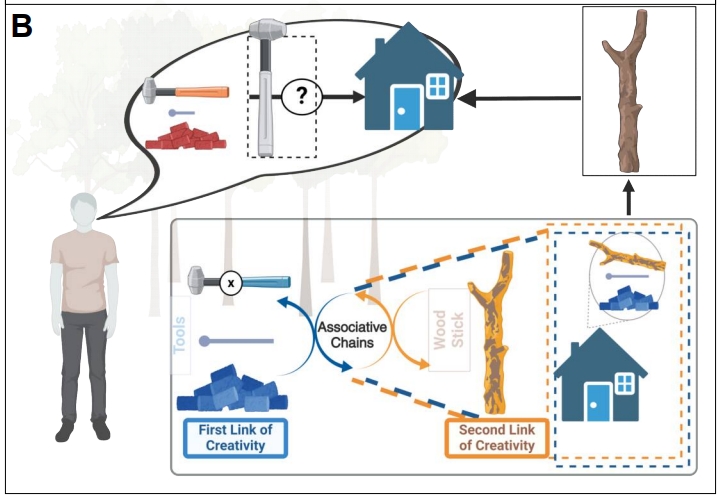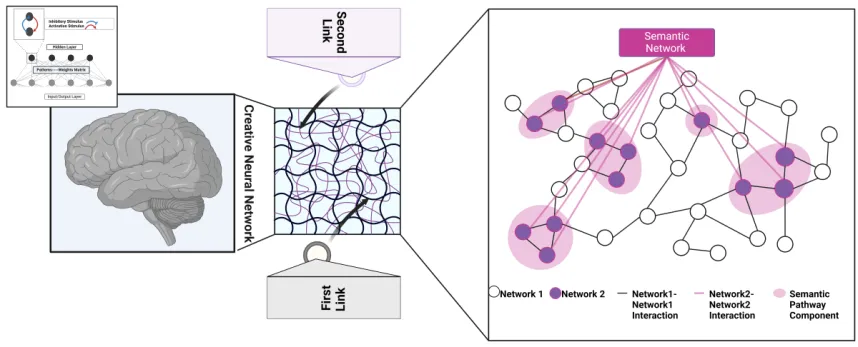Constructor University researchers shed light on creative thinking in a new study
Understanding the processes involved in creativity is not just fascinating; it is beneficial. It can enhance creativity, improve problem-solving skills, and explore the intricate relationship between mental health and creative potential. Researchers at Constructor University in Bremen have now published a new article on the topic.
Creativity is the art of combining diverse ideas, making meaningful connections between concepts, and remaining focused to produce innovative ideas and useful solutions. Expansive and remote associations drive the generation of new ideas, while inhibition enables refining these ideas into practical solutions. A recent study, led by former student Ronald Mtenga and directed by Dr. Mathias Bode and Dr. Radwa Khalil at Constructor University, has illuminated crucial conclusions about creative thinking processes. The study, published in the Journal of Creative Behavior, provides a fresh perspective on the shift from analytical to creative thinking.

This study employed a unique approach by utilizing the Hopfield neural network (HNN), a neural network model, to investigate the mechanisms of semantic creative thinking-based associations. Researchers identified two key mechanisms that facilitate the transition from analytical to creative, associative thinking, suggesting that creative thinking often emerges when analytical thinking is insufficient.
Ronald Mtenga, the study's first author, holds a BSc in Electrical and Computer Engineering from Constructor University, where Dr. Mathias Bode is affiliated. Dr. Radwa Khalil is a renowned expert in the creativity field, known for her multidisciplinary approaches that span cognitive neuroscience, neuropsychology, computational modeling, and empirical research.
Those interested in obtaining more detailed information may access the full paper for comprehensive insights: https://doi.org/10.1002/jocb.680.
Questions answered by:
Dr. Radwa Khalil | Neurobiologist
rkhalil@constructor.university | Tel.: +49 421 200-3430
